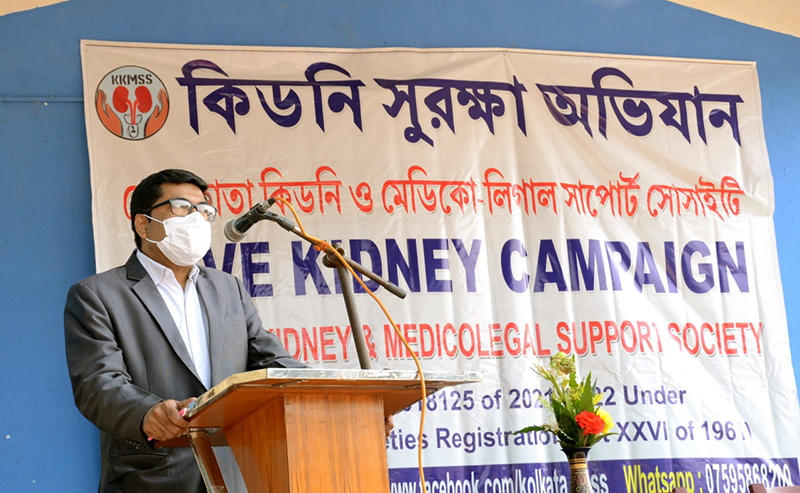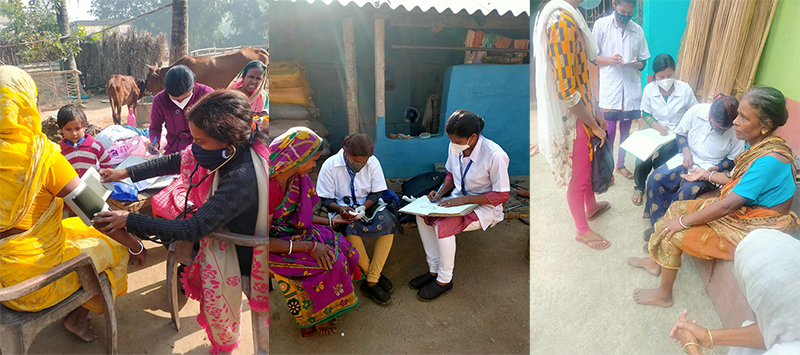 Kidney
Kidney Prevention of Chronic Kidney Disease: Care Through Non-Governmental Initiatives
It appears that in India, diabetes and hypertension are responsible for 40% -50% of all cases of chronic renal failure.
The overall prevalence of diabetes in India is around 7-11% and the rise has been dramatic from 11.9 million in 1980 to 64.5 million in 2017. The prevalence of hypertension in India was about 29.8% (33.8% in urban areas and 27.6% in rural areas) in 2019. The reported prevalence of Chronic Kidney Disease in different regions ranges from 1% to 13%. The International Society of Nephrology’s study reported a prevalence of 17% in 2016.
The treatment of Chronic Kidney Disease (CKD) when it reaches its end stage (ESRD) is very expensive. The cost of dialysis varies from Rs 1200 to Rs 3500 per session in the public or private sector. A patient needs 8 to 12 sessions of dialysis a month. The central government and different states are funding free dialysis. However, it has an enormous burden on the health budget. The quality of dialysis in many centres too raises many questions.
Kidney transplant, on the other hand, has multiple issues like availability of donors besides huge costs. Hence prevention is the best long-term option, more so in a country like India.

Diabetes, hypertension and CKD need regular and long-term treatment. The availability of doctors and the cost of visiting a doctor on a regular basis is a serious health burden, especially for the poor. India has one of the lowest densities of health workforce with just 7 physicians and 17 nurses per 10000 population as against the global average of 13.9 and 28.6 respectively (World Health Statistics, 2015). The issue is very serious in rural areas as most doctors and hospital beds are concentrated in urban areas catering to only 20% of the population.
Existing evidence suggests that compared with standard care, using community health workers in health programmes has the potential to be effective in low- and middle-income countries.
In due course, treatment of diabetes and hypertension are often neglected and people reach end-stage renal disease and die prematurely. Screening for hypertension and CKD is simple. The best approach will be to start screening for CKD in high-risk groups. Money invested in prevention programmes for CKD in India is certainly going to give results in years to come by saving costs in the long run. The money thus saved can be used for other health care programmes.
Of the total health budget allocation, at least 80% of the funds should be earmarked for disease prevention, health promotion and improving the quality of health services at the primary care level.
National Health Mission (NHM) provides an overarching umbrella, subsuming the existing non-communicable diseases control programmes in both urban and rural areas. But the efforts have not been effective on the ground due to implementation-level challenges.

Non-governmental Initiatives
The government’s programmes and facilities may not be enough to control ailments like CKD. It requires spread of awareness besides cheaper and easily accessible medical facilities. It’s here that non-governmental initiatives can play a critical role in management of such diseases and overall health care.
Kidney Help Trust (KHT) was founded by Chennai-based nephrologist Dr M K Mani who believes that prevention needs to play a greater role in reducing the massive health spending that is often associated with the treatment of chronic diseases.
The Trust has been running its programmes since 1997. It had shown to reduce the prevalence of CKD from 33 for every 1000 villagers to only 8 per 1000 with intervention.
On similar lines, I founded an organization called Kolkata Kidney and Medico-legal Support Society (KKMSS) for prevention of CKD. The Society has chosen 17 villages under Purandarpur Gram Panchayat in Bankura district for the 1st phase. The organisation has employed GNM staff as Community Health Workers. Girls from the local community are also chosen for training to help CHWs (Community Health Workers) and later they can become independent CHWs.

Our CHWs visit door to door in the assigned villages and screen people above the age of 20 years. They collect information based on a simple set of questions formulated by KKMSS. They check sugar level and blood pressure and, if needed, urine as per our established protocol. Blood tests are done for those at high risk of CKD. Our doctors also examine and treat them on a regular basis. CHWs also follow them up to monitor their treatment compliance and routine check of sugar and BP at regular intervals. When needed, CHWs ask villagers to visit government hospitals (and avoid any particular medical practitioner or nephrologist to bypass commercial motive) for further care. Unlike a health camp, the screening and monitoring programme will be a continuous process to prevent CKD.
The programme has also generated employment opportunities, especially for girls, in villages. The participation of villagers has been overwhelming. Political leaders, local administration and other social groups like clubs have extended support to the programme.
(The author is Senior Nephrologist, Fortis Hospitals, Kolkata & Secretary, KKMSS. He can be reached at docpar@gmail.com)
Support Our Journalism
We cannot do without you.. your contribution supports unbiased journalism
IBNS is not driven by any ism- not wokeism, not racism, not skewed secularism, not hyper right-wing or left liberal ideals, nor by any hardline religious beliefs or hyper nationalism. We want to serve you good old objective news, as they are. We do not judge or preach. We let people decide for themselves. We only try to present factual and well-sourced news.







